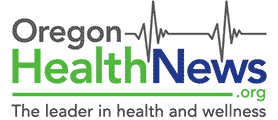Providence Medford Medical Center’s Heart and Vascular Institute has expanded to include its newly-opened Cardiac Rehabilitation Center, bringing a new level of care to those suffering from heart-related illnesses. By providing comprehensive cardiac rehabilitation following coronary surgeries, the staff in the unit are striving to help patients recover faster and build long term habits that could make life post-surgery fruitful and fulfilling.

“Just as diet and exercise can help curb the risk of heart disease, heart attacks and stroke before a catastrophic coronary episode occurs, the proper diet and rehabilitation exercises after heart surgery or coronary intervention have proven to be no less vital for having a long and fruitful life,” said James Cook, M.D., cardiologist and medical director for the Heart and Vascular programs at Providence Medford Medical Center.
Heart-related illnesses remain the number one cause of death for most Americans, according to the Centers for Disease Control. In 2011, more than 26.5 million Americans were diagnosed with some form of heart disease or heart-related ailments. Of that number, more than 596,000 died as a direct result of their illness and many of those died from a recurrence of a previously diagnosed heart-related issue.
At Providence Medford Medical Center, a skilled team of physicians, nurses and exercise specialists are working to cut that number through education and implementation of a comprehensive cardiac rehabilitation program that will help patients to exercise safely while building strength and cardiovascular fitness.
“Another benefit for patients is that they build confidence while improving physical, mental and social well-being,” said Jennifer Scott, exercise physiologist. “Patients will also learn about heart health and how to reduce their risk of further cardiac problems.”
According to the American Heart Association, supervised comprehensive cardiac rehabilitation helps the patients’ heart get stronger and work more efficiently following surgery. Counseling, which often accompanies the physical rehabilitation component, can curb habits that may be at the root of the patient’s heart problem. Such habits include smoking, a high-fat diet or a sedentary life style. Counseling can also help patients learn how to properly manage stress and can help improve overall health.
Jane Broten, director of heart and vascular services at Providence Medford, says the benefits gained through the rehabilitation process help patients get back to living a normal life quicker.
“Rehabilitation helps in a variety of ways,” Broten said. “For example, it increases exercise endurance which helps with daily living activities such as showering, preparing meals and extracurricular activities.”
Providence Medford’s Cardiac Rehabilitation Center is open weekdays 7:30 am – 4:00 pm.
Cardiac rehabilitation is available for patients who have had any of the following: a heart attack, coronary bypass surgery, angioplasty, valve surgery, stable angina, a heart transplant or a heart-lung transplant. Participants do need a physician referral with a cardiac diagnosis to take advantage of the center’s services.
For more information, call 541-732-5033 or visit www.providence.org/heart.
###
Providence Health & Services is Oregon’s largest health system and largest private employer. Providence in southern Oregon includes Providence Medford Medical Center, a 168-bed acute care facility featuring a wide range of health care services including home health care, and Providence Medical Group-South, the largest multi-specialty group in southern Oregon and northern California providing care for family practice, internal medicine, cardiology, obstetrics, gynecology, pediatrics, physiatry vascular and general surgery and neurology. Visit www.providence.org/medford.
